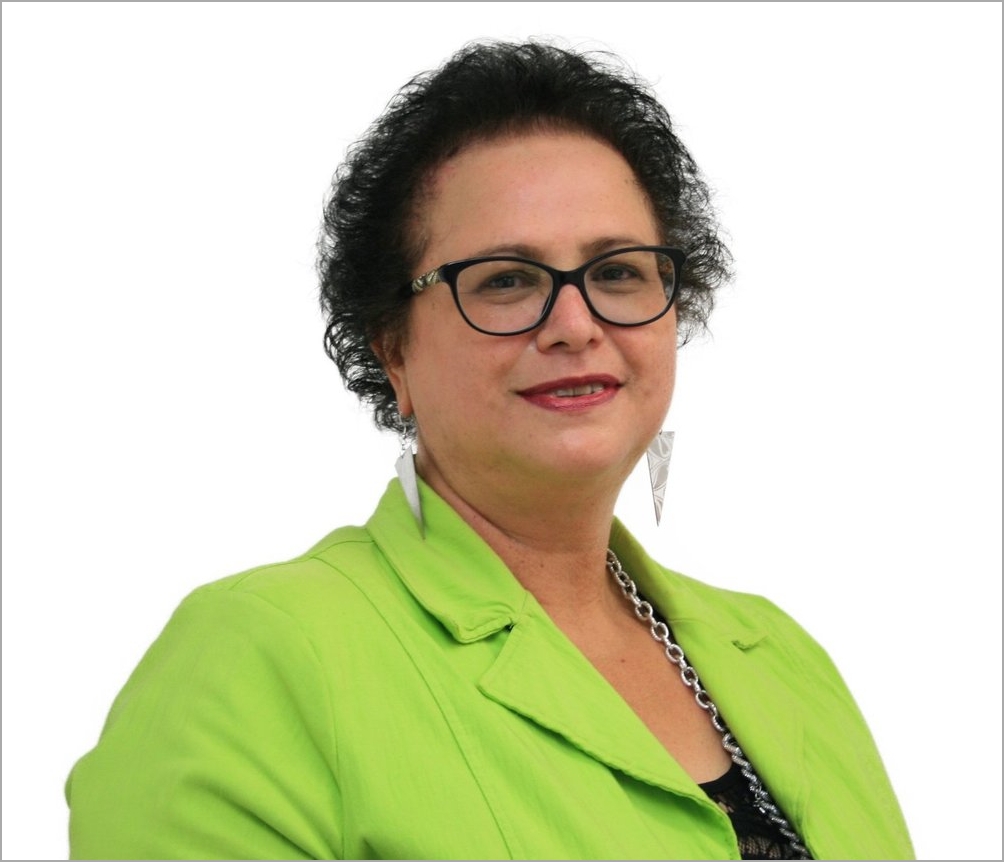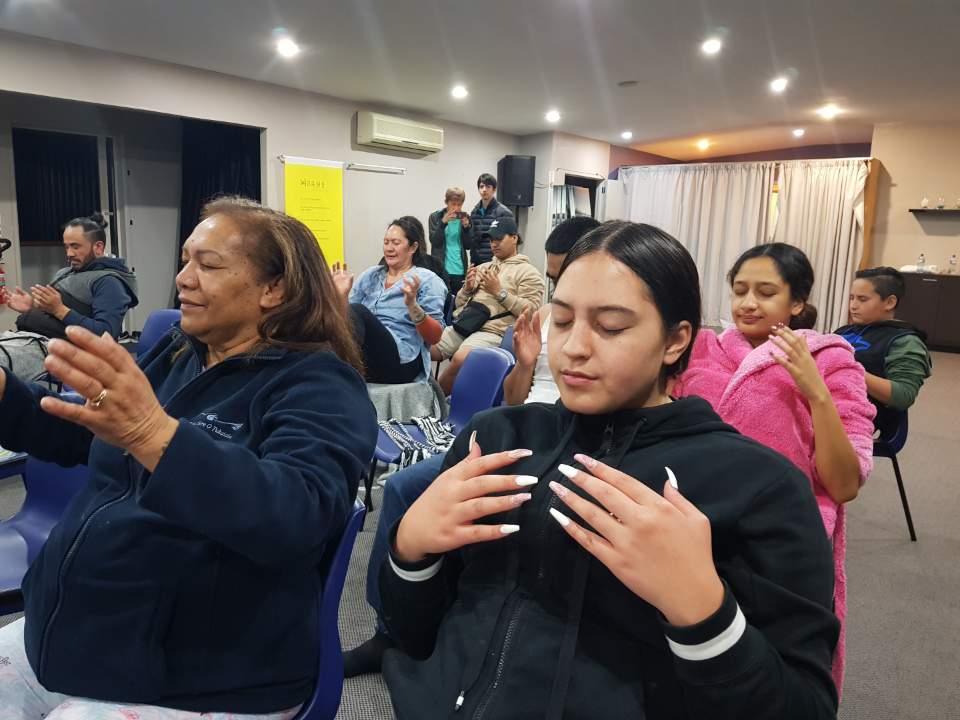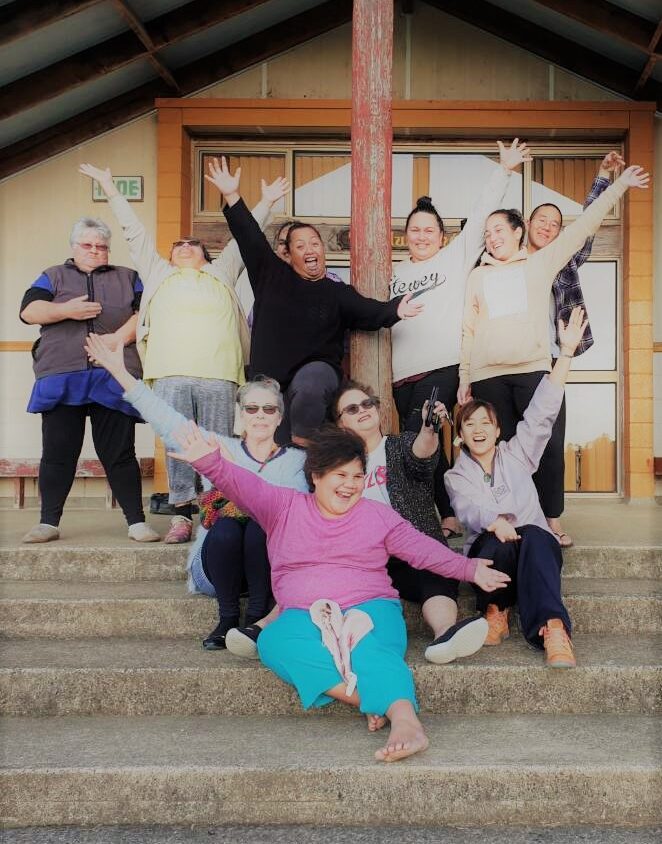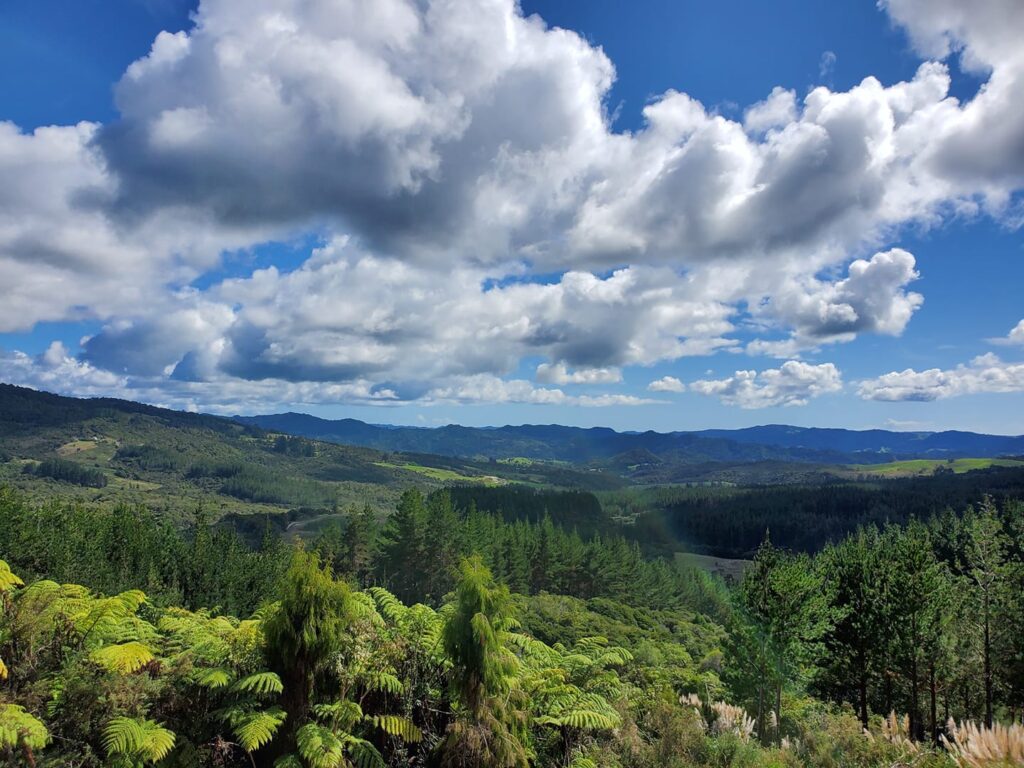Interview with Dr. Lily George
New Zealand is on the opposite side of the world. Dr. Lily George, a descendant of the Maori people of Te Kapotai, majored in social anthropology and has devoted over 20 years to the study of the health and well-being of the mind and body, focusing on the trauma of the native Maori people. After completing a period as a senior researcher at Massey University, Lily became research director at the Western Institute of Technology at Taranaki. Lily is now living a busy life as Director of Education at the New Zealand Headquarters of ECO (Earth Citizens Organization) in Kerikeri, as well as continuing her research work. ECO is a nonprofit organization promoting natural health and mindful living for a sustainable world.
Since her first encounter four years ago with Brain Education, which was developed in Korea, she has seen the potential of its philosophies and practices for helping people in New Zealand. For example, a Maori youth suicide prevention program has been positively impacted by Brain Education and is at a new turning point. The following is the summary of a video interview with Lily.

I remember your presentation at the First Annual Earth Citizen Peace Festival hosted by ECO in January 2017 in Kerikeri, New Zealand. It was about the accomplishments gained by combining Brain Education with Maori youth suicide prevention programs. In particular, you said, “Understanding how trauma is accumulated in the body is key to figuring out how to deal with such pain,” emphasizing that Brain Education was very helpful in recognizing and relieving pain accumulated in the body. What methods did you use?
The project is titled “Kokiritia Te Aroha,” which means “Advocating through love” in Maori. It is a program intended to improve self-esteem and mental health, targeting Ngātiwai youths. Its first stage began in January 2015, thanks to support from the Ngātiwai Trust Board.
First of all, it helped adolescents to express problems they were facing, including suicide, through drama and art such as painting. Based on the results, we categorized three themes—leadership, connection, and healing—as the main factors to support youth, and began incorporating Brain Education into our workshops as a method to help resolve the issues in the second stage.


The Brain Education methods we used are very simple, for example, tapping the body lightly or jumping like a kangaroo. These simple movements allowed participants to focus on their bodies, letting them recognize their emotional pain. Many young people wouldn’t even realize they were suffering from the effects of trauma they had experienced in their lives. On the contrary, they considered emotional and mental pain to be normal. As an adult, we face many difficulties in life, both physically and mentally. For this reason, we need to look at the pain we are experiencing first, and, then we can move on to the stage where we can overcome it and recover.
I have been with this group of youth for 5 years since 2015—they attended the inaugural Earth Citizen Peace Festival in 2017 with me. It took a lot of time and effort for this younger generation to begin healing themselves and find direction for their lives. Many of them are carrying the accumulated pain of their parents and grandparents and earlier generations in what we call an intergenerational transmission of trauma. Now, many of them have begun to see their inner strength and have been able to overcome some of the impacts of the trauma accumulated in their short lives, as well as that from the generations before.
Now, we are in the third stage. In the third stage, we aim to create a toolbox of resources that other people and groups can use, to spread it across other towns, tribes, and the country. It is a process to create resources for anyone who faces a mental crisis or other life challenges to use, indicating that now Brain Education can be spread as part of a toolbox for dealing with the mental health and well-being of young people.
The increase in the youth suicide rate is a global phenomenon. The New Zealand government has recently announced that it has allocated NZD 1.9 billion, which was the largest part of the entire budget, to the treatment of mental illness. What do you think is necessary to prevent suicide and enhance mental health?
It is positive that the government emphasizes well-being as a concept that embraces mental and spiritual health as well as physical health. It would be difficult, however, to reduce the suicide rate by only increasing the budget. In fact, the government has spent several million dollars (NZD) for the prevention of suicide and resolving suicide-related issues over the last decade; however, Maori youth still have the highest suicide rate in the world.
The problem is the approach that considers suicide as a “mental illness.” Many people in the area of suicide prevention suggest the importance of understanding the complex interaction with society in comprehending suicide in young people. We must recognize how society has destroyed the hope of Maori people in particular, and suppressed their potential, often making them feel helpless thinking “no matter how hard I try, there is no future for me.” I believe no significant change to the suicide rate would occur without further insight into these matters.
How does Brain Education help in this regard?
I’d like to speak based on my own experience as a practitioner rather than talking technically.
The first is about “connection.” When I started training at the Body & Brain Center in Auckland, my body age was measured as 79 years of age. In fact, I was 53 years old, but I was in very poor health. However, as I practiced, I lost weight and my health improved. Unfortunately, after about 10 months, I had to move to a place where there was no Body & Brain center, so instead, I signed up for a Tai Chi class. Around 12 to 15 people attended the class, but there wasn’t the connection that I used to feel at the Body & Brain Center. At Body & Brain, there is a common energy field where leaders first connect with each other to help members, and then members connect to support each other at the Body & Brain Center. Such connections and a sense of togetherness, encouragement, and love are now required for youth.
Another is about “potential.” Brain Education supports us in recognizing that we have infinite potential. Recognizing one’s potential requires a lot of courage. Many people are living their lives without accepting their potential. Furthermore, it encourages us to go one step further into our inner world and find and use our “ability” to realize our potential.
I heard that you have recently started a new project to support overcoming trauma and improving mental health.
It started in the small village called Waikare to help Te Kapotai people discover their inner aspiration for a healthy life and practice it voluntarily—these are my family from my tribe. I expect around 100 people will join the project once it starts in earnest as some villagers who attended Brain Education classes are making it go viral by saying it is “joyful torture” and a very effective and fun class. The marae—our traditional gathering place—where the Brain Education classes are held, is an important place for Maori to recover the connection between generations. In New Zealand, inter-generational severance has recently become a big issue. I believe restoring the relationship between the younger generation and the older generations could help indirectly resolve the issue of young people’s suicide.
Many Maori communities have had trauma accumulated throughout generations from the colonial era in the 19th century. The purpose of this project is to help them recognize their trauma and pain and increase their health and well-being. I hope that the trauma will not be continued from generation to generation by healing the trauma of future generations as well as the trauma from the past.
Korea has experienced and is still suffering from a number of problems caused by its national identity being distorted through Japanese colonial rule. Understanding the value of one’s community culture and having a sound identity seem to be very important for the young generation to promote their mental health and self-esteem.
My mother’s generation was punished if they spoke the Maori language at school. As a result, the number of people who spoke Maori decreased to around 5 percent by 1925. Fortunately, it has now increased to 25 percent, but that still means that 75 percent of our people don’t speak our language.
What matters is that language was one of the ways to understand who I am as a Maori while growing up—but I and many other Maori didn’t have language and our culture to help nurture them as children. People then grow up with negative thoughts about their roots and Maori identity, and cannot recognize their potential or expect anything from their future, believing they deserve only humble occupations. They do not expect any ability to realize their potential. As a result, they have few goals to achieve in their lives.
I was also in the same situation when I was young. My life was changed because there were people around me who told me in various ways, “I believe in you and your potential. I am here to help you.” Our young friends also need that today. They need someone to tell them, “I believe in you. We are here to help you.” I expect that this project will encourage young people to build positive identities, recovering the connection between them and the communities to which they belong.
How do you want young Maori friends to contribute to the world in the future?
Professor Mason Durie, a prominent Maori scholar in the study of health, wrote that we as Maori should be proud of our Maori identities and at the same time, become world citizens, connecting with other people who have different racial, cultural, or tribal backgrounds. Having a sound and healthy identity means that they recognize that they have the potential and the ability to make positive changes in their country as well as in other countries around the world. In a sense, it is similar to the meaning of being an earth citizen.

The spirit of voluntary service is one of the concepts lost in many cultures over time. Once we restore the positive relationship with ourselves, our communities, and the earth, we are naturally attracted to things that will help the growth of those to whom we are related. The key to the restoration of relationships with each other and with the natural world is in the spirit of voluntary service.
ECO has recently signed an agreement with Benjamin School for Character Education for broad exchange and cooperation. I was told that students of Benjamin School for Character Education are engaged in a variety of programs helping local and global communities for 1 year. I expect it would be a good opportunity for both Korean and Maori youths to share and communicate in the future.
Summarized by Ji-In Kim. Photograph courtesy of ECO. (The article appeared in the Brain Vol. 78)

